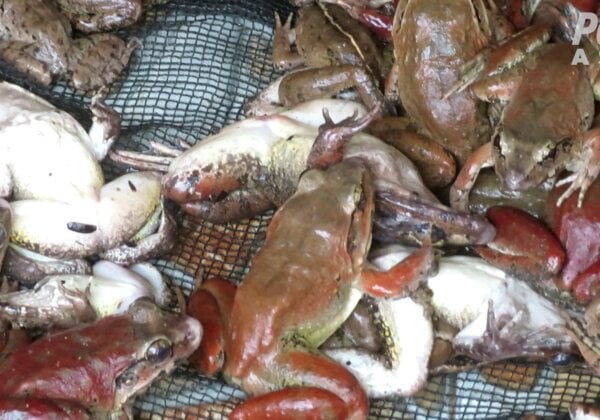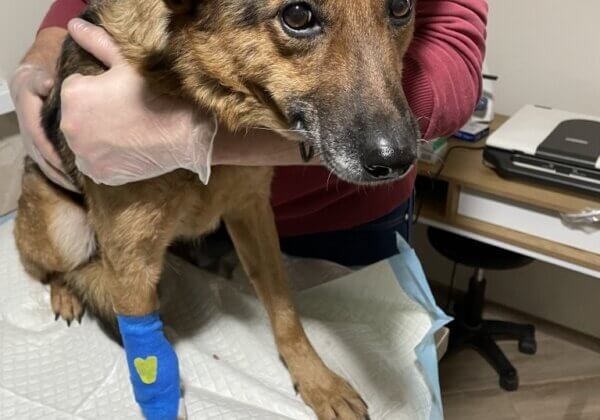Petri Dish Organs – One Key to Freeing Animals From Labs
In a ground-breaking announcement earlier this month, professor of nanomedicine Wojciech Chrzanowski and his colleagues revealed that they had successfully grown replica human lungs at the University of Sydney and would soon be publishing a paper complete with instructions to help other researchers grow their own “mini lungs”.
This remarkable breakthrough will spare countless animals suffering and will result in scientific findings that are far more relevant to human health. Moreover, it paves the way for even more discoveries of its kind – by replicating organs, we move ever closer to a world in which no animal suffers in a laboratory!
 Stefanie Zingsheim/University of Sydney
Stefanie Zingsheim/University of SydneyProfessor Wojciech Chrzanowski in the lab.
Using Animals Is Unethical
Australia ranks as the world’s fifth largest user of animals in experiments, and each and every one of the approximately 6 million animals used this way in the country annually is a sensitive individual who feels fear and pain.
A wide variety of animals are used – monkeys, sheep, pigs, cats, rats, and native animals, like wallabies. They’re confined to barren cages while they await and then endure invasive experiments in which they’re deliberately and often mortally wounded, infected, blinded, suffocated, or electrocuted. A very small number of animals ever make it out of laboratories alive – most are euthanised when no longer deemed “useful” or even killed as part of a planned end point for the tests.
Professor Chrzanowski, speaking about his experience with sensitive baboons, which first prompted him to seek animal-free research methods, noted:
“They are really intelligent. The moment you start approaching their cage they start screaming, hitting things, and hiding. They know that something wrong is going to be done to them. It is heartbreaking.”
He added, “The moment you start working in a lab, and have to start squeezing and cutting animals, you feel sorry for them.”
Of course, animals don’t need pity – they need for action to be taken against animal testing. So do we, if we’re to continue making medical advances.
Animal Use Is Also Junk Science
Animal experimentation is cruel and also bad science. Differences in anatomy and biochemistry render animal tests useless with regard to humans more often than not.
The world’s foremost medical research funder, the National Institutes of Health in the US, notes that 95% of all new medications that are shown to be safe and effective in animal tests fail in human trials because they’re ineffective or harmful. And of the small percentage of drugs approved for human use, half end up being relabelled because of side effects that weren’t identified in tests on animals.
In a nutshell, animal experimentation is cruel to animals, costly for taxpayers, and unhelpful (even dangerous) to humans – no wonder world-class experts like Professor Chrzanowski’s team want to put it behind us as quickly as possible!
‘Mini Lungs’ Are Just the Beginning
The advent of “mini lungs”, which perform exactly like human organs but without harming anyone, is just the tip of the iceberg when it comes to animal alternatives.
Alternatives to animal tests – including human clinical and epidemiological studies as well as the use of cell technology, cadavers, simulators, and fully functioning organs-on-chips – are advancing all the time and will soon allow researchers to help humans more effectively, without harming animals.
What we need in Australia is for the government to start funnelling money into modern, humane research methods.
What YOU Can Do While Science Catches Up
- Only buy cruelty-free products. Find vegan brands by searching PETA US’ comprehensive Beauty Without Bunnies
- Join PETA’s Action Team. We’re campaigning to end the forced swim test at universities and pharmaceutical companies. Please sign the action alerts linked to in the previous sentence and then join our Action Team to stay informed about new campaigns.
- Donate to humane charities. Unfortunately, many health charities fund animal testing, often without making that clear to members of the public. If you’re considering making a donation, first enquire to ensure the charity doesn’t conduct or fund animal experiments.
- Share your new-found knowledge – let others know about what happens to animals used for experimentation and how they, too, can help!







